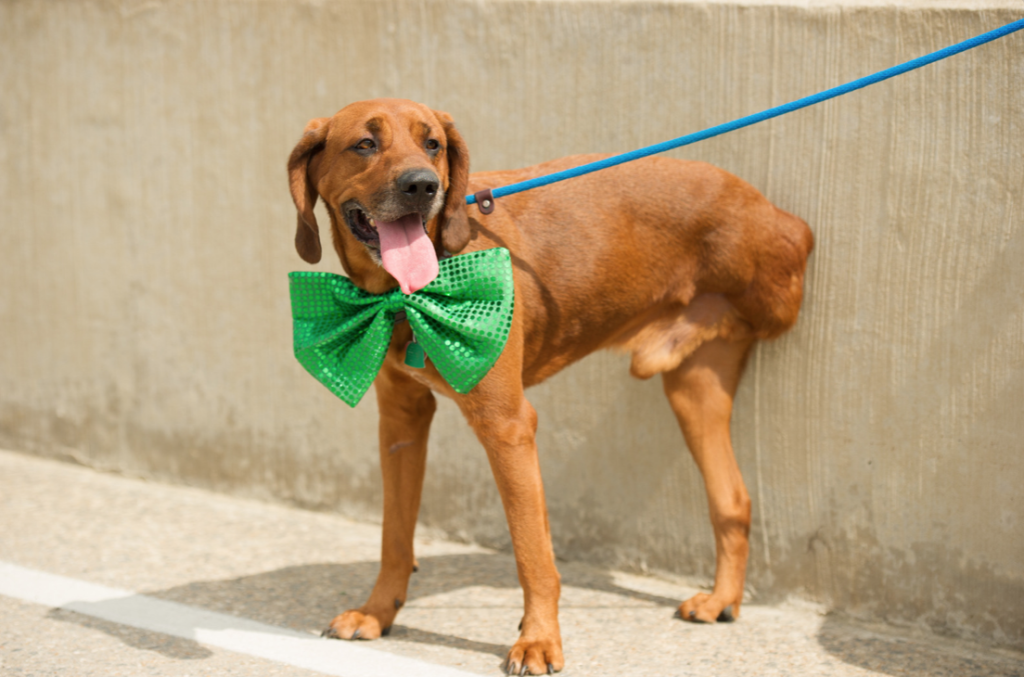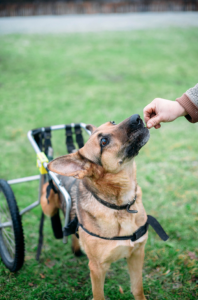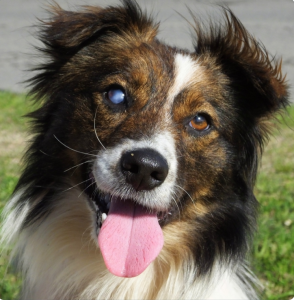
Essential Tips and Advice for Optimal Care:
Welcome to our guide on caring for a special needs dog! Whether you are considering adopting a special needs dog, have recently welcomed one into your family, or your beloved canine companion has become disabled, it is important to understand the extra care required to ensure they have the best life possible. In this article, we have compiled a wealth of tips and advice to help you provide optimal care for your disabled dog.
Establish a Daily Routine:
Creating a consistent daily routine is essential for managing your special needs dog’s care. Keeping track of medications, appointments, and daily activities can be challenging, even for experienced dog owners. By developing a routine and sticking to it, you can ensure that you meet all your dog’s needs consistently. Set specific times for waking up, feeding, and administering medication to provide structure and stability. A routine not only helps you stay organized, but it also gives your disabled fur baby a sense of security and peace of mind. According to this article by AKC.org, “dogs thrive on consistency and benefit from knowing what to expect.”
Learn About Nutrition:
Proper nutrition is vital for your special needs dog’s overall health and well-being. Different dogs may have unique dietary requirements, and it is crucial to cater to their specific needs. In fact, we have an entire blog dedicated to the importance of diet for special needs dogs. A healthy and balanced diet, just like for humans, is essential for your pup’s strength and vitality. Consult your veterinarian to determine the most suitable type and brand of food for your disabled dog.
Encourage Socialization:
Do not isolate your special needs dog simply because they are different from other dogs. Socialization is essential for their mental health and overall well-being. Although dog parks or beaches may not be suitable for your pup, there are other ways to introduce them to other dogs and provide social interaction. Organize “doggy play dates” with friends or family who have friendly dogs. Alternatively, consider joining a support group for disabled dog owners in your area. Disabled dog support groups and communities can coordinate fun meetups and plan activities specifically designed for special needs dogs. Additionally, these groups offer valuable emotional support and advice for owners navigating the challenges of caring for disabled dogs.
Maintain Hygiene:
Regular spa days are a must for your special needs dog’s hygiene and well-being. Maintaining proper cleanliness helps prevent skin or fur issues and ensures that your dog looks and smells their best. Regular bathing is particularly useful if your companion has frequent accidents, needs a diaper, or tends to get messy during bathroom breaks. If you are unsure about the ideal bathing frequency for your furry friend, consult this article from Hill’s for expert guidance.
Stay Active:

Exercise is an essential aspect of any dog’s life, irrespective of any disabilities they may have. Keeping your special needs dog active and engaged is crucial for their physical and mental well-being. Here are some exercise ideas for disabled dogs:
- Walking: Whether your dog has all four legs or requires a wheelchair, walking can be a fun and stimulating activity. Even a leisurely stroll around the neighborhood can provide your special pup with enough stimulation to keep them happy.
- Swimming: Swimming is particularly beneficial for dogs with arthritis or other painful joint and muscle conditions. Low-impact exercises like swimming in a pool or a lake can provide the perfect balance of fun and exercise. However, always ensure your dog is comfortable in the water and have someone nearby to supervise them at all times.
- Tug-Of-War: This game is perfect for special needs dogs who may struggle with outdoor activities or prolonged periods of movement. Engaging in a gentle tug-of-war session can get their hearts pumping, stimulate their minds, and help strengthen the bond between you and your dog.
- Underwater Treadmills: Similar to swimming, underwater treadmills offer a low-impact exercise option that is excellent for rehabilitation, weight loss, and overall fitness for special needs dogs.
- Foraging Games: Stimulate your dog’s mind and keep them physically active by throwing treats around the yard or using a snuffle mat. These exercises are especially enjoyable for food-motivated dogs and can be easily done from the comfort of your own home.
Prioritize Training:
Training is essential for all dogs, but it holds particular importance for those with special needs. Learning basic commands not only keeps your dog mentally stimulated but also helps prevent unwanted behaviors. Additionally, training becomes invaluable for administering medication, attaching harnesses or wheelchairs, and assisting your dog in their daily activities.
Perform Regular Check-ups:
While veterinary visits are crucial for taking care of a special needs dog, you can also stay on top of their health right at home. Conducting regular examinations on your furry friend will help you quickly notice any signs of potential health issues. Take a close look at their skin, fur, ears, eyes, and teeth, and be vigilant for any abnormalities. By performing these checks, you not only contribute to your disabled dog’s overall health, but you also become better educated about specific issues that they may have due to their particular condition.
Invest in Proper Equipment and Toys:
Investing in the right equipment can significantly improve your special needs dog’s quality of life. For dogs that require assistance with mobility, consider purchasing a high-quality wheelchair or mobility aid. Numerous companies specialize in disabled dog equipment, offering a range of products to cater to their unique needs. Additionally, select toys that are specifically designed for special needs dogs. For example, if your dog has limited mobility, opt for stationary toys. If your dog is visually impaired, choose toys with visually stimulating features or toys that emit sounds. These toys are designed to provide mental and physical stimulation, tailored to your dog’s specific abilities and challenges. If you have any questions regarding dog wheelchairs, you can check out this article by handicappedpets.com.
Don’t Get Overwhelmed:
 It’s natural to feel overwhelmed when considering the extra steps required to care for a special needs dog. However, it is important to remember that this experience can be one of the most rewarding and fulfilling journeys of your life. Disabled dogs possess remarkable resilience, strength, and positivity that can be truly inspiring. What makes them even more beautiful is that they are unaware of their differences and refuse to let any disability hinder their zest for life.
It’s natural to feel overwhelmed when considering the extra steps required to care for a special needs dog. However, it is important to remember that this experience can be one of the most rewarding and fulfilling journeys of your life. Disabled dogs possess remarkable resilience, strength, and positivity that can be truly inspiring. What makes them even more beautiful is that they are unaware of their differences and refuse to let any disability hinder their zest for life.
Moreover, by owning a special needs dog, you become an advocate and spread awareness about the capabilities and worth of these incredible animals. Sadly, disabled dogs often face the highest risk of euthanasia in shelters. By providing a loving home to a special needs pup, you not only give them a second chance at life but also demonstrate to others that they are just as deserving of love and care as any other dog.
Special needs dogs are not fundamentally different from any other adorable dog out there; they simply have a few additional requirements. What they truly desire is your love and affection, so shower them with it wholeheartedly. Be prepared to receive an immeasurable amount of love in return. The love you receive from a disabled dog is just as fulfilling, if not more so, than the love you would receive from any other dog!
Caring for a special needs dog requires dedication, patience, and a willingness to adapt to their unique circumstances. By following these tips and advice, you can ensure that your disabled dog receives the best possible care, leading to a joyous life together. Remember, you are not just caring for a dog; you are providing a second chance and a loving home to a truly remarkable companion.
